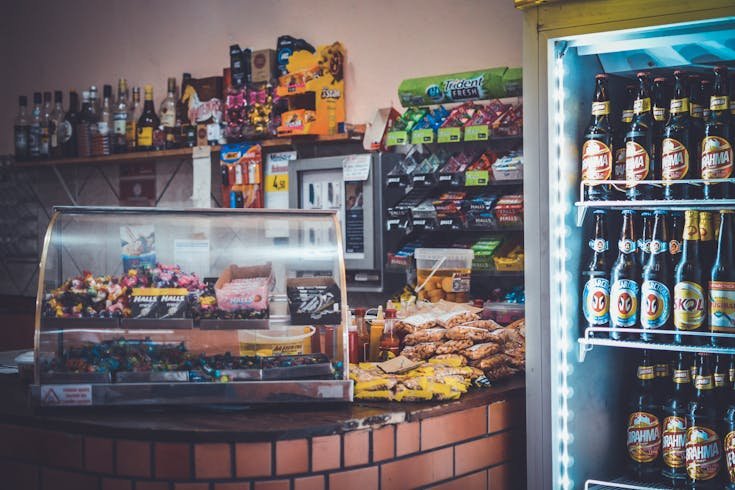In today’s globalized food market, ensuring the safety and quality of food products is of paramount importance. In Indonesia, the Food and Drug Monitoring Agency (BPOM) plays a critical role in this regard. Let’s delve into the regulations enforced by BPOM to guarantee the safety and quality of food circulating in the country.
Also read: What Is BPOM in Indonesia: Its Role and Regulation
Here are some BPOM regulations related to food:
Processed Food Registration


To ensure that domestically produced or imported processed food products meet safety standards, BPOM mandates a rigorous registration process. This process involves:
Submission of Product Documents and Data
Manufacturers or importers must submit comprehensive documentation and data regarding their processed food products to BPOM.
Evaluation by BPOM
BPOM conducts a thorough evaluation of the submitted documents to assess the safety and quality aspects of the food products.
Inspection of Production Facilities
BPOM also inspects the production facilities to ensure compliance with hygiene and safety standards.
Issuance of Distribution Approval
Upon successful completion of the registration process, BPOM grants distribution approval, indicating that the product meets regulatory requirements.
Also read: Exploring the Types of Business Licenses in Indonesia
Processed Food Quality Standards
BPOM establishes stringent quality standards for various types of processed foods, including:
Raw Material Composition
Ensuring that processed foods contain safe and appropriate ingredients is essential to prevent health risks.
Limits for Harmful Substance Contamination
BPOM sets limits for contaminants such as heavy metals and microbial pathogens to safeguard consumer health.
Pesticide Residue Limits
To minimize the risk of pesticide exposure, BPOM imposes limits on pesticide residues in processed foods.
Organoleptic and Physical-Chemical Quality Requirements
BPOM defines criteria for sensory attributes and physical-chemical properties to maintain product integrity and consumer satisfaction.
Also read; Starting a Business Partnership in Indonesia: A Foreigner’s Guide
Production and Distribution Oversight


BPOM conducts vigilant oversight of the production and distribution processes to uphold food safety standards. This oversight includes:
Inspection of Production Facilities
Regular inspections ensure compliance with hygiene, sanitation, and production standards.
Sampling of Products
BPOM collects samples of processed food products for laboratory testing to verify compliance with quality standards.
Quality and Safety Testing
Laboratory analysis is conducted to assess the safety and quality parameters of processed food products.
Enforcement Actions
BPOM takes swift enforcement actions against any regulatory violations, including product recalls and sanctions against non-compliant entities.
Also read: How to Check Company Details in Indonesia: A Complete Guide
Accessing Information on BPOM Regulations
Consumers and industry stakeholders can access comprehensive information on BPOM food regulations through the official BPOM website.
Important BPOM Food Regulations
- BPOM Regulation No. 23 of 2023 on Processed Food Registration
- Regulation of the Drug and Food Control Agency Number 13 of 2023 concerning Food Categories
- Regulation of the Indonesian Food and Drug Authority Number 27 of 2022 on Importation Control of Food and Drugs into the Territory of Indonesia
Also read: Health and Food Supplement Registration in Indonesia
To successfully register your food with Indonesia’s BPOM, ensure compliance with regulations and gather notarized documents. Consider partnering with a local expert for guidance. Register online, prepare electronic documents, and be patient as the process can take months.
For simpler and hassle-free Indonesia food registration process, you can rely on InvestinAsia’s services. We can help you with Business Registration Number Indonesia and Business Licenses and permit.
Chat us now to get special offer and FREE consultation!
FAQs about BPOM Indonesia Food Regulation
1. Why is BPOM regulation important for consumers?
BPOM regulations safeguard consumers by ensuring that food products meet safety and quality standards, reducing health risks.
2. How can consumers verify BPOM approval on food packaging?
Consumers should look for the BPOM distribution approval number on the packaging of processed food products before making a purchase.
3. What should consumers do if they suspect a food product does not meet BPOM standards?
Consumers can report any concerns or suspicions regarding food safety to BPOM for investigation and appropriate action.
4. Are there any penalties for companies that violate BPOM regulations?
Yes, BPOM imposes penalties such as product recalls, fines, and legal sanctions on companies found to be non-compliant with regulations.
5. How often does BPOM conduct inspections of food production facilities?
BPOM conducts regular inspections of food production facilities to ensure ongoing compliance with safety and quality standards.



